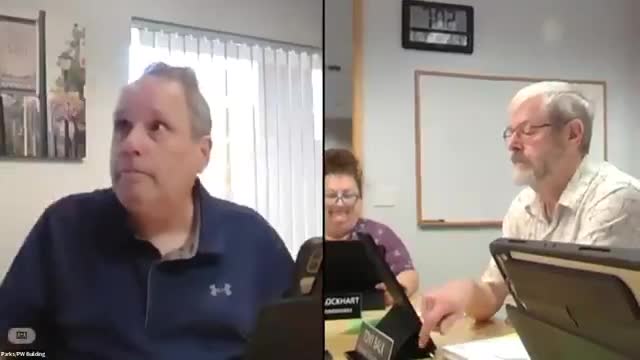Planning commission adopts unit‑lot subdivision changes despite concerns over separate utility hookups
Get AI-powered insights, summaries, and transcripts
Subscribe
Summary
The Monroe Planning Commission on June 9 adopted findings of fact and conclusions of law recommending that the City Council approve unit‑lot subdivision code amendments required by ESSB 5258, while flagging concerns that an engineering requirement for separate utility hookups could substantially increase costs for small developers.
The Monroe Planning Commission on June 9 adopted findings of fact and conclusions of law recommending that the City Council approve amendments to Chapter 22.68 of the Monroe Municipal Code to implement unit‑lot subdivisions as required by ESSB 5258.
The amendments are intended to implement state law and add related minor edits to Chapter 22.12 (definitions) and Chapter 22.84 (permit processing). Planner Nida told commissioners the item was introduced March 10, discussed at the commission April 14, held a public hearing May 12 and is tentatively scheduled for a City Council public hearing on June 24, 2025.
Why it matters: the ULS changes make it easier, in code, to split a parent parcel into smaller “child” lots intended to support housing infill and ADUs. Commissioners warned one engineering requirement — that each separate lot must have its own water and sewer connection — could substantially raise development costs for small builders, potentially undermining the code’s intent to reduce barriers for smaller housing projects.
Details and debate Planner Nida said the city’s engineering code (chapter 23.1) currently requires a separate utility connection for each newly created lot, and that engineering is willing to work with developers on solutions but will require separate metering under today’s standards. Nida also said the planning record included one public comment after the deadline from the Snohomish County Association of Realtors largely supporting the amendments but urging flexibility on shared and sub‑metered utilities.
“...the cost of individual sewer hookups and lines will obstruct small builders. This is an additional permitting cost, and it's also a lot of extra labor and materials, which will be—it'll add tens of thousands of dollars to each structure built if we have separate sewers,” Commissioner Kelsey said during discussion.
Commissioners asked staff whether the utility requirement is a zoning code item or an engineering/public‑works standard. Staff responded that the separate‑meter requirement is an engineering standard and would require public works/engineering code changes to allow shared or sub‑metered systems. Planner Nida said she will follow up with engineering and can invite engineering staff to a future meeting to explain options and costs.
Outcome and next steps A motion to adopt the commission’s findings of fact and conclusions of law and to recommend that City Council approve the proposed amendments carried 5–1. The commission authorized the chair to sign the findings on the commission’s behalf and directed staff to include the commission’s utility concerns in the packet sent to council. Staff said they may have additional time to incorporate the commission’s comments before the council public hearing and that further discussion with engineering is planned.
The item now moves to the Monroe City Council for a tentative public hearing on June 24, 2025; final action there will determine whether engineering code changes are necessary to implement any flexibility on shared utilities.
The commission’s vote approved the findings and recommendation only; no changes to engineering code were adopted at the meeting.
What to watch for: whether City Council includes specific language or referrals to engineering/public‑works standards that would allow shared or sub‑metered utilities for unit‑lot subdivisions, and any subsequent amendments to chapter 23.1 (public works/engineering).
